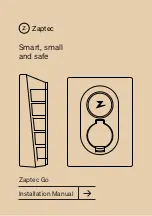
2008-2011 IQ System Electric Vehicle Maintenance and Service Supplement
Page 14-1
14
SECTION 14 – BATTERIES
ý
DANGER
• See General Warning, Section 10, Page 10-1.
ý
WARNING
• See General Warning, Section 10, Page 10-1.
GENERAL INFORMATION
The batteries supplied with an electric Club Car vehicle are different from those supplied with an automobile.
The outward appearance of these two batteries is similar, but the operating characteristics are very different.
The Club Car electric vehicle battery is a deep-cycle battery, and the automotive battery is a “starting, lighting
and ignition” (SLI) battery. They should never be substituted for one another.
BATTERY CARE
See General Warning, Section 10, Page 10-1.
PREVENTIVE MAINTENANCE
To keep batteries in sound operating condition, follow these steps on a regular basis.
1. Any corrosion build-up on or around batteries should be removed immediately. Terminal connections
should be clean and tight. Any frayed or worn wires should be replaced. After all cables have been con-
nected, coat all terminals with Battery Terminal Protector Spray (CC P/N 1014305) to help prevent future
corrosion.
2. Batteries should be clean and free of corrosion. Wash tops and terminals of batteries with a solution of
baking soda and water (1 cup (237 mL) baking soda per 1 gallon (3.8 L) of water). Rinse solution off bat-
teries. Do not allow this solution to enter the batteries. Be sure terminals are tight. Let the terminals dry
and then coat them with Battery Terminal Protector Spray (CC P/N 1014305).
3. Maintain proper electrolyte level.
See Electrolyte Level on page 14-2.
4. Batteries should be properly charged every day they are used. Check the batteries periodically to see
that they are in a full state of charge.
See Battery Charging on page 14-4.
5. Keep hold-downs tight.
See Vibration Damage on page 14-3.
SELF-DISCHARGE
Contaminants on dirty batteries can provide a path for a small current draw that can slowly discharge batter-
ies, thus wasting valuable energy. To prevent self-discharge, batteries should always be kept clean.
Hot weather also has an effect on a battery’s self-discharge rate. The higher the temperature, the quicker a
set of batteries will discharge. In hotter climates, batteries should be checked more often. When storing bat-
teries, keep in a cool place.
















































